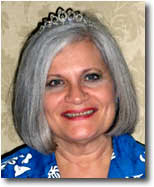I recently received an envelope in the mail with no return address and no personal note, just copies of three articles about men who used to be part of Exodus International, who used to identify themselves as “ex-gay,” and now repudiate that part of their histories. It is consistent with emails and blog comments I have received pointing this out, and asking if that doesn’t negate my position that homosexuality is changeable.
No. The fact that some people, denouncing something they used to support, now represent themselves as proud gays and lesbians, doesn’t change anything. Just as people who lived in sobriety from alcohol and drugs for years have been known to get sucked back into their addictions, it isn’t surprising that some would get weary of the struggle against their temptations and stop fighting.
Some people gave up earlier than others, hoping and expecting that if they just kept living “the straight life,” their feelings would catch up with their resolutions. They kept waiting for homosexual desires and temptations to disappear, and they didn’t. So they decided that they were done with trying to pretend to be something they weren’t. I’m good with not pretending; I’m a huge believer in authenticity and transparency.
But if someone continues to experience same-sex attraction even if they don’t act on it, does it mean they’re gay, as the culture insists?
What the culture says—if you ever have same-sex feelings, it means you’re gay—doesn’t matter compared to what God says.
God calls us to make choices every day that contradict and violate our feelings and temptations, but which we choose because they are the right thing to do. From the basics of the Ten Commandments to the ultimate example of Christ in the Garden of Gethsemane, He calls us to choose obedience and behavior that honors Him and other people despite our feelings. What if we don’t feel like telling the truth? Don’t lie anyway. What if we don’t feel like not killing the person who really ticks us off? Don’t murder anyway. What if we don’t feel like remaining faithful to our spouse? Don’t commit adultery anyway.
So what if someone doesn’t feel like stewarding their sexuality in purity and self-control? Regardless of the nature of the temptation, whether same-sex or opposite-sex, God calls us to possess our own body in holiness and honor (1 Thess. 4:4).
Sadly, some men who had come out of homosexuality have left their wives and children to return to living as gay men. This isn’t really much different from men who leave their wives and children for another woman. Succumbing to temptation, regardless of who tempts us, is still sin. Heartbreaking, home-breaking sin.
We’re hearing people saying, “I’m not ex-gay anymore because trying to be ex-gay doesn’t work. ‘Pray away the gay’ (a rather offensive term used by scoffers) doesn’t work. Trying hard to be straight doesn’t work. ‘Claiming my healing’ doesn’t work. I’m done.”
And they’re right.
What doesn’t work:
Name-it-and-claim-it theology, the religious version of “wishing will make it so.” Trying to speak reality into existence, as in “I am no longer gay because I’m a Christian,” doesn’t work because we don’t create reality through our words. Only the Creator God can do that.
Casting out the demon of homosexuality. While there is always a demonic component to idolatry and unrepentant sin, homosexuality is not caused by a demon, any more than bigotry, selfishness or gossip are.
Trying harder, praying harder, reading the Bible, begging God to make the gay feelings to go away. These human efforts are the religious equivalent of mowing the grass to get rid of dandelions. (For a completely different approach—grace—check out True-Faced.)
What does work:
Laying aside one’s sexuality as the measure of identity. “Who I really am” according to our flesh is always going to be at odds with “who God says I am” according to His word. Seeking a deeper relationship with our heavenly Father and the Lord Jesus Christ through the spiritual disciplines moves us toward reframing our faulty identity, no matter who we are or what we struggle with. We need to choose to find our identity in what God says about us—most importantly, receiving and owning the truth that He says, “You are My beloved child in whom I am well pleased.”
Looking at the contributing factors that shaped the same-sex “hole” in one’s heart (and the lies connected to them) to process them in light of God’s love and sovereignty, and then forgive the people who inflicted the wounds.
Choosing to learn to live with a tension: our flesh wants things that are dishonoring to God, dysfunctional and dangerous, but God calls us to do the right thing anyway. Regardless of our desires and feelings. Right from the beginning, He told Cain, “[I]f you do not do what is right, sin is crouching at the door. It desires to dominate you, but you must subdue it” (Gen 4:7). God didn’t say to Cain, “I know, you’re angry because I didn’t accept your offering. That’s who you are, an angry soul. Go and let your anger explode!” In the New Testament, we read, “The thief must no longer steal. Instead, he must do honest work with his own hands, so that he has something to share with anyone in need” (Eph. 4:28). God didn’t say to the thief, “I know, you feel compelled to take what doesn’t belong to you. That’s who you are, a stealing soul. Go and act on your desires to steal!”
Now we have people saying, “I am attracted to the same sex. Since everyone says I am defined by my feelings, I now realize that’s just who I am.” And God does not say to them, “I know, you are gay/lesbian/transgender/bi-sexual. That’s who you are, so go act on it!” God calls everyone to the same standard: sexual holiness and integrity, which means keeping all sex within the bounds of marriage between one man and one woman.
Adjusting one’s expectations. Accepting the truth that one’s attractions and desires may always be warped to some degree; they may always remain an area of weakness that can drive the disciple to a deeper level of dependence on God, which is essential for growing in relationship with Him. That may mean learning to live with a “thorn in the flesh” (2 Cor. 12:7-10) instead of insisting that the only culturally acceptable change is a 180-degree shift in attractions from homosexual to heterosexual.
There is no “easy button.” Submitting to the process of sanctification means crucifying the flesh, and that’s hard. For any Christ-follower. And that’s where lasting change happens—as we are made into the image of Christ (Gal. 4:19), as we are transformed by the renewing of our minds (Rom. 12:2). And that might, or might not, extend to our feelings. Regardless of who we are.
This blog post originally appeared at blogs.bible.org/tapestry/sue_bohlin/when_ex-gays_return_to_a_gay_identity on May 7, 2013.
 I was crippled by polio at six months old, paralyzed from the waist down on my left side. In order to stand or walk at all, I was fitted with a steel-and-leather brace from hip to shoe. This brace provided the external support I needed to stay upright and to walk. I was blessed to regain some use of my leg, and my muscles slowly grew stronger. I was able to go to a half brace; then, when I learned to lock my knee, they took away the brace altogether because the strength and support became internal rather than external.
I was crippled by polio at six months old, paralyzed from the waist down on my left side. In order to stand or walk at all, I was fitted with a steel-and-leather brace from hip to shoe. This brace provided the external support I needed to stay upright and to walk. I was blessed to regain some use of my leg, and my muscles slowly grew stronger. I was able to go to a half brace; then, when I learned to lock my knee, they took away the brace altogether because the strength and support became internal rather than external.
 I remember one time a couple of months into my new life, discovering a different kind of fellowship with other Christ-followers and a love for God’s word as I started being taught the Bible and learning to teach others what I was learning, wondering if this cool new life would last or if it was just some sort of fad. I didn’t know that God was transforming me, giving me a taste for His life and His kingdom that would spoil me for any counterfeit the world had to offer. He opened my eyes to be aware of the spiritual realm, not just the physical realm I lived in, and enlarged my understanding to include the Big Picture of life on earth and in eternity. I learned that my life wasn’t about me at all, it was about Jesus, and because He loved me, He had drawn me into His life, His circle of delight and fellowship with His Father and His Spirit—that I was now included into the “holy hug” of Father, Son and Spirit who had adopted me, and I was now a daughter of the King—which makes me a forever princess! Forty years later, I still revel in that gift, and I love to pull out a tiara and pop it on my head when I’m sharing my story of grace with people.
I remember one time a couple of months into my new life, discovering a different kind of fellowship with other Christ-followers and a love for God’s word as I started being taught the Bible and learning to teach others what I was learning, wondering if this cool new life would last or if it was just some sort of fad. I didn’t know that God was transforming me, giving me a taste for His life and His kingdom that would spoil me for any counterfeit the world had to offer. He opened my eyes to be aware of the spiritual realm, not just the physical realm I lived in, and enlarged my understanding to include the Big Picture of life on earth and in eternity. I learned that my life wasn’t about me at all, it was about Jesus, and because He loved me, He had drawn me into His life, His circle of delight and fellowship with His Father and His Spirit—that I was now included into the “holy hug” of Father, Son and Spirit who had adopted me, and I was now a daughter of the King—which makes me a forever princess! Forty years later, I still revel in that gift, and I love to pull out a tiara and pop it on my head when I’m sharing my story of grace with people. This course required a caddy (a golfing-savvy helper) to accompany every golfer, and it was the first time our friend Pam had ever golfed with a caddy. She kept marveling at the Christian life lessons she was learning from the specialized help she received throughout the game. At dinner on the last night of the cruise, the eight people at our table each shared the highlight of our week; Pam’s was definitely “golfing with a caddy.”
This course required a caddy (a golfing-savvy helper) to accompany every golfer, and it was the first time our friend Pam had ever golfed with a caddy. She kept marveling at the Christian life lessons she was learning from the specialized help she received throughout the game. At dinner on the last night of the cruise, the eight people at our table each shared the highlight of our week; Pam’s was definitely “golfing with a caddy.”